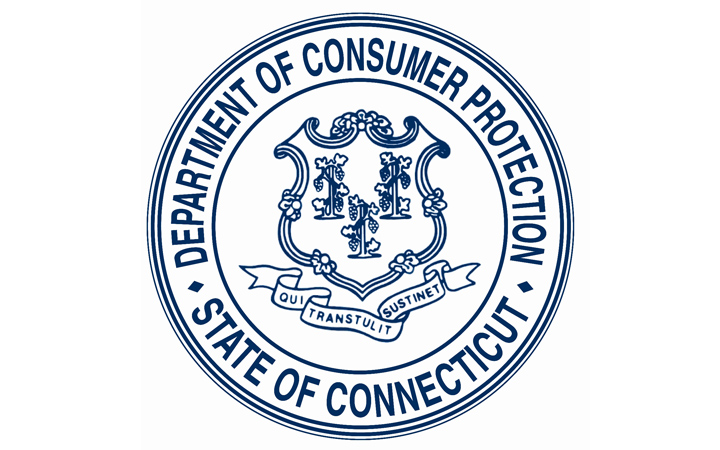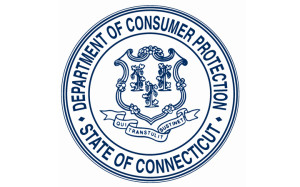
 FOR IMMEDIATE RELEASE
FOR IMMEDIATE RELEASE
From the Office of John Suchy, Director, Liquor Control Division
October 23, 2018
Reminder to All Permit Holders – Liquor Permits Need to be Recorded with local Town Clerk
Over the past few months, Liquor Control Division agents and local town clerks have expressed a concern that liquor permits are not being recorded in the offices of the local Town Clerks in the state as required by law.
Here is the relevant portion of the statute:
Sec. 30-53. Permit to be recorded. Each permit granted or renewed by the Department of Consumer Protection shall be of no effect until a duplicate thereof has been filed by the permittee with the town clerk of the town within which the club or place of business described in such permit is situated; provided the place of filing of railroad and boat permits shall be the office of the town clerk of the town of New Haven, and airline permits, the office of the town clerk of the town of Hartford.
Please know that this is required by law, and is not optional. In addition, please know that the fee to record the permit is twenty dollars ($20.00).
If you have any questions about this or any other liquor-related matter, please call (860) 713-6210 and speak with an agent on duty, or visit dcp.liquorcontrol@ct.gov.
_________________________________________________________________________________________
From the Office of John Suchy, Director, Liquor Control Division
October 23, 2018
Extension of Deliverers Approved for Wholesalers
Recently the Liquor Control Commission approved a request which allows all CT wholesalers to deliver beverage alcohol products ordered and sold during the month of October 2018 through Friday, November 2, 2018.
Please note that this is an approval for extension of deliveries only, and in no way changes the fact that order-taking must be completed by the end of the day on October 31, 2018.
If you have any questions about this or any other liquor-related matter, please call (860) 713-6210 and speak with an agent on duty, or visit dcp.liquorcontrol@ct.gov.
_________________________________________________________________________________________
From the Office of John Suchy, Director, Liquor Control Division
October 23, 2018
Effective Separation – Guidance Statement
On March 23, 2018, Regulations of Connecticut State Agencies § 30-6-B29 was amended to allow the Department of Consumer Protection (“DCP”) to waive for good cause the effective separation requirements for restaurant and café permit holders. The new language is underlined below:
Sec. 30-6-B29. Separate barrooms; partitions
On all new applications for a restaurant permit or for a café permit where the café is to consist of more than one public room the department shall require either effective separation of the dining room, or lounge from the barroom or an agreement to the effect that the use of the bar on the premises will be confined to a service bar only, in an area wherein patrons are not allowed to produce or obtain drinks in said service bar. Nothing in this section shall prohibit a permittee from lawfully operating both a barroom and a service bar. During the department’s review of restaurant permit and café permit applications, or upon request by any active restaurant or café permittee, the applicant may request and the department may grant, for good cause shown, an exception to the effective separation requirement.
The amendment was promulgated as a regulatory implementation of 2013 Public Act No. 12, “An Act Concerning Barroom Partitions.” That Public Act required DCP to promulgate regulations allowing DCP to grant exemptions from the existing requirement that premises holding restaurant or café permits have separate toilet facilities reachable without passing through the barroom, and that the dining room or lounge be separated from the barroom.
DCP may only grant a waiver of the effective separation requirement for “good cause shown.” In evaluating what constitutes “good cause,” the following considerations may be relevant:
- The premises is of historical significance, and the separation requirement may be prohibited by local law or detrimental to the historical preservation of the premises;
- Waiver is required either for structural reasons related to the building’s soundness or fire safety;
- The premises is so small that requiring a separation may negatively impact the minimal square footage of dining area requirement;
- The premises reflects a current model for a national brand restaurant, recognized by the industry as primarily a dining establishment and/or advertised as a family-style restaurant;
- The premises does not rely on liquor sales as a primary source of income, and is known in the community primarily for its food, with alcohol offered complementary to the food;
The premises is held out as a dining facility, and does not advertise or hold itself out as a drinking establishment; - The average age of the patron is shown to be of modest or mature age;
- The premises does not advertise live entertainment or a menu typically attractive to younger crowds; and
- The bar area is not a focal or dominant component of the restaurant concept or consumer experience.
The list is not meant to be exclusive nor binding, and DCP will act on a case-by-case basis after considering the totality of the circumstances to determine good cause. Note that, in the event an effective separation waiver is granted, DCP will not treat the entire premise as a barroom. In other words, unaccompanied minors will still be allowed in the premise to eat. However, permittees remain responsible for ensuring that minors and intoxicated individuals do not loiter at or around the bar area, and are not served or given access to alcoholic beverages.
If you have any questions about this or any other liquor-related matter, please call (860) 713-6210 and speak with an agent on duty, or visit dcp.liquorcontrol@ct.gov.
John J. Suchy, Director of the Liquor Control Division
The Department of Consumer Protection, through the State Liquor Control Commission, oversees all sales of liquor in the State of Connecticut. 165 Capitol Avenue, Hartford, Connecticut 06106-1630, Liquor Control Division website www.ct.gov/dcp



